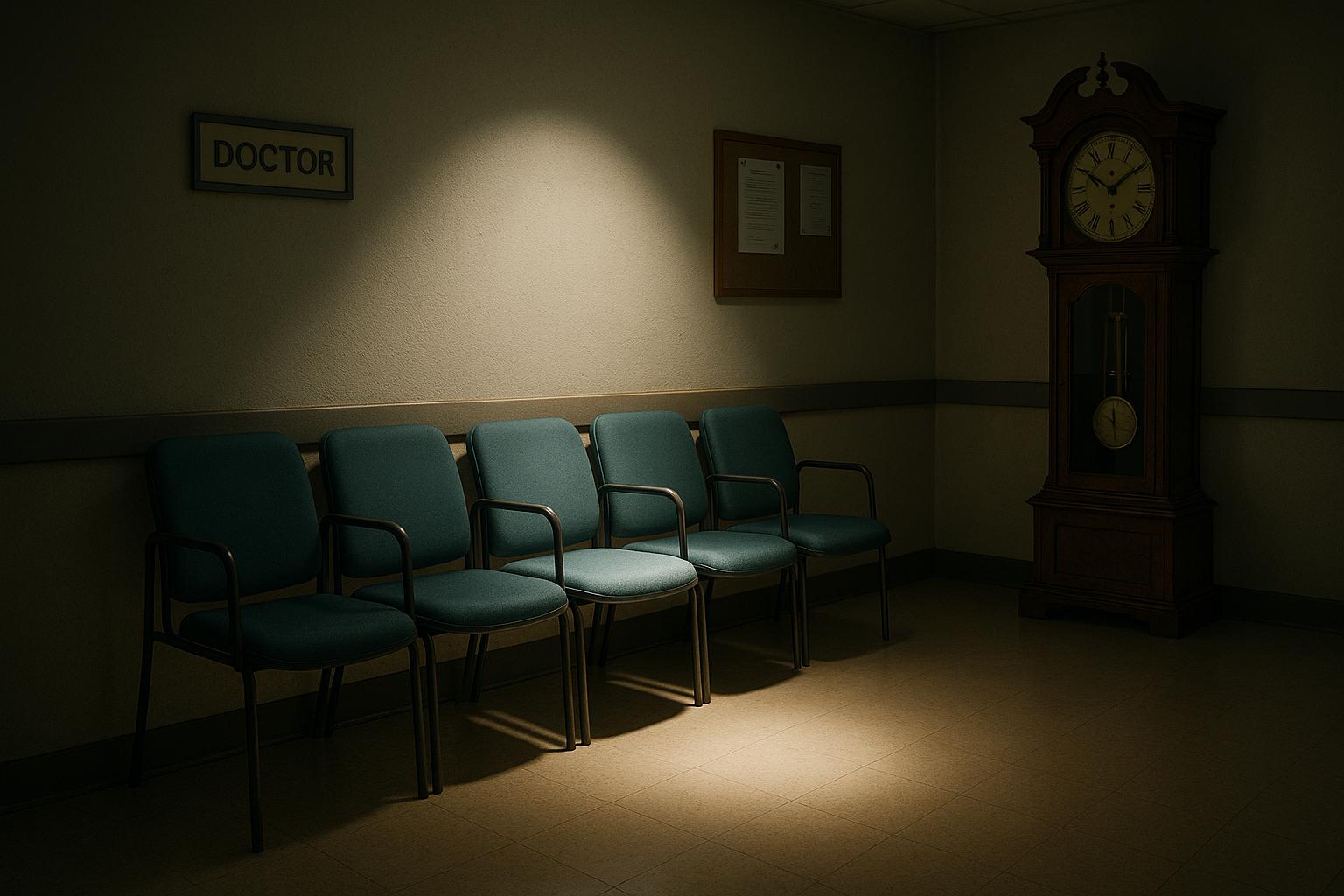A recent public poll underscores that improving access to GP appointments is the foremost priority for the NHS in the eyes of the public, surpassing other key concerns such as A&E waiting times and staff retention. This insight comes from research conducted by the Health Foundation, which surveyed over 2,200 UK adults in May. While the Government’s flagship policy—cutting waiting times for routine hospital treatments like hip and knee surgeries to a maximum of 18 weeks by 2029—features prominently in official plans, it ranks only fifth in public concern, far behind the desire for easier GP access.
The survey reveals a generally pessimistic mood about the NHS’s performance and future. A significant 83% of respondents feel that the standard of NHS care has either stagnated or worsened over the past year, with 41% anticipating further decline in the next 12 months. Furthermore, public confidence in the Government's NHS policies remains low, with just 16% agreeing that the right policies are in place compared to 53% who disagree. Despite these concerns, there remains strong support for the NHS’s foundational principles—that it should be free at the point of delivery, provide comprehensive services to all, and be primarily funded through taxation. However, there is unease about the NHS’s future sustainability, with a quarter of those surveyed doubting that comprehensive services will remain universally available in five years, and over 20% sceptical that the service will remain free at the point of use.
The report’s authors note that this polling preceded the Government's unveiling of its 10-Year Health Plan, which focuses on reforming and strengthening NHS services, particularly by shifting more care into community and neighbourhood settings. Despite this, public awareness of the plan appears limited, with one Ipsos survey finding that nearly three-quarters of the English public are unaware of the Government’s 10-Year Health Plan. The plan includes expanding primary care and aims to reposition GPs at the heart of neighbourhood health services.
Supporting the public’s priorities, NHS England reports that access to general practice is improving, driven largely by technology. Nearly 75% of patients now find it easy to contact a GP, a 10% increase since last summer, supported by the adoption of digital telephone systems and innovative triage methods. For instance, some practices offer total triage, ensuring patients receive timely and appropriate consultations, including face-to-face appointments and continuity of care with the same GP when necessary. This has led to a rise in patient satisfaction, with some practices reporting total satisfaction increasing from 73% in 2023 to 88% in 2025.
Addressing GP access, the UK government and British Medical Association have agreed on significant reforms to modernise general practice and improve patient experience. Starting from October, GP surgeries will be mandated to allow online appointment requests throughout working hours, aiming to eliminate the problematic '8am scramble' for appointments. A 7.2% increase to the GP contract budget, outpacing overall NHS budget growth, is part of this effort—along with a commitment of nearly £900 million extra funding for GP services in the 2025/26 financial year. The reforms also reduce bureaucratic burdens so that GPs can dedicate more time to treating patients.
Despite these efforts, public scepticism remains strong. A separate recent survey found that almost half the public doubt that the Government’s 10-year plan will improve GP access or A&E waiting times, with some fearing conditions could worsen. Nevertheless, there is wide support for specific elements such as new neighbourhood health centres, the NHS app expansion, and increased mental health support in schools.
Social care also figures prominently in public concern, with many believing the state should play a larger role in funding care services. Half of respondents disagree that the Government currently has the right policies for social care, reflecting widespread pessimism about this sector's future.
Healthcare stakeholders have responded to the poll's findings, urging policymakers to prioritise public concerns. Professor Kamila Hawthorne, chairwoman of the Royal College of GPs, emphasised that the Government should “take note” of the public’s desire for better GP access and timely, personalised care. NHS Providers’ chief executive, Daniel Elkeles, acknowledged the immense efforts by NHS staff to improve care despite challenges. Patricia Marquis of the Royal College of Nursing highlighted that nurses deliver a substantial proportion of appointments in both general practice and A&E, and stressed the need for sufficient staffing and investment to meet demand and achieve the public’s priorities.
A Department of Health and Social Care spokesperson stated that the Government is focused on "turning around over a decade of neglect," prioritising easier access to GPs through investments, recruitment, surgery upgrades, and cutting red tape to free up doctors’ time.
The Health Foundation’s Tim Gardner summarised the challenge facing the Government: while there are encouraging signs that services are recovering, “the risk is that slower progress is made on delivering the priorities that matter most to the public.” For the Government, bridging the gap between public perception and actual service performance will be crucial to demonstrate tangible benefits and secure political support amid ongoing NHS reforms.
📌 Reference Map:
- Paragraph 1 – [1], [2], [7]
- Paragraph 2 – [1], [2]
- Paragraph 3 – [3]
- Paragraph 4 – [4]
- Paragraph 5 – [6]
- Paragraph 6 – [2], [1]
- Paragraph 7 – [1], [2], [5], [6], [4]
Source: Noah Wire Services
